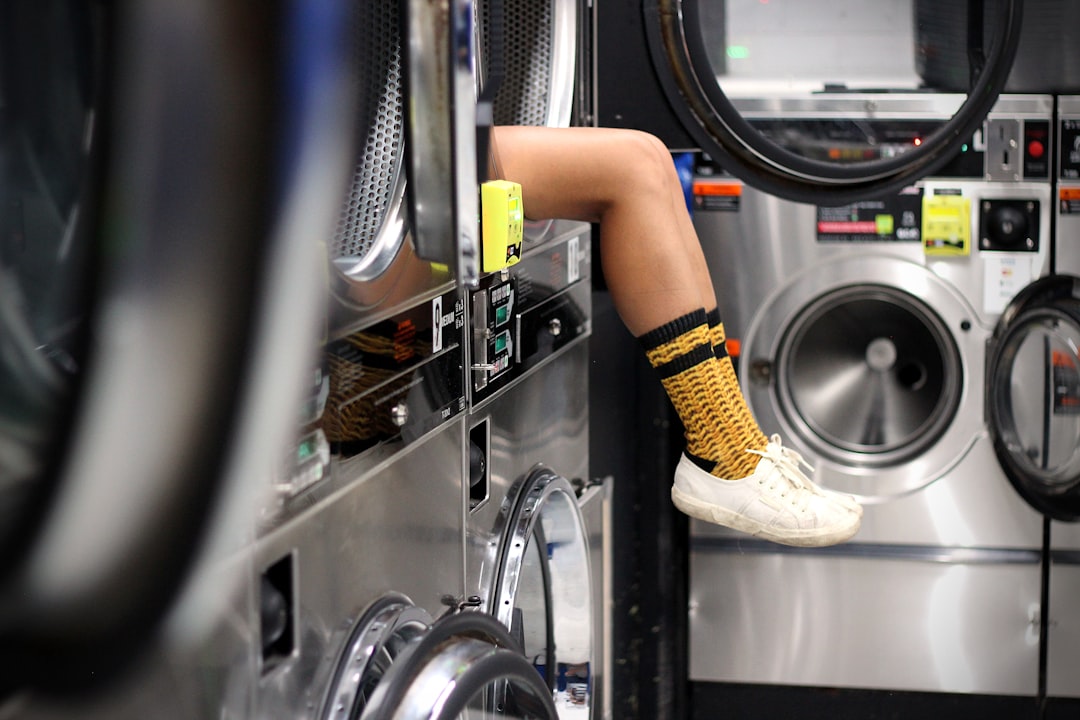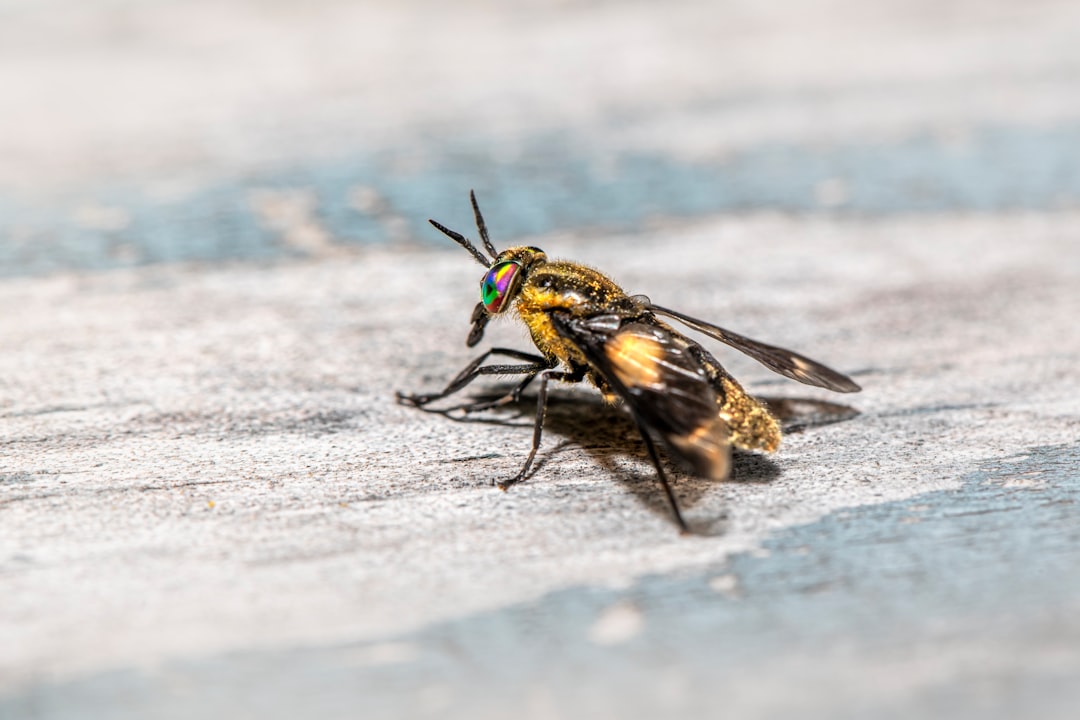Don’t Let the Bedbugs Bite: Preventing the Paris Bedbug Epidemic from Spreading to the UK
Don't Let the Bedbugs Bite: Preventing the Paris Bedbug Epidemic from Spreading to the UK - Inspect Luggage Thoroughly After Returning From Paris

Inspecting your luggage thoroughly after returning from Paris is one of the most important steps you can take to prevent bringing bedbugs back home with you. Bedbugs have become an increasingly problematic issue in many areas of Paris, with infestations being reported in hotels, apartments, stores, movie theaters and more. While the Paris city government has implemented measures to combat the growing epidemic, bedbugs remain a real concern for travelers.
That's why meticulously going through your luggage when you get home is so critical. Adult bedbugs are small - about the size of an apple seed - but visible to the naked eye. Performing an inspection allows you to spot any bedbugs that may have hitched a ride in your suitcase or other travel bags. Look in every nook and cranny - under zipper flaps, in the lining, inside pockets, etc. Bedbugs can squeeze into some very tight spaces, so don't leave any section unsearched. Use a flashlight to illuminate dark areas and a magnifying glass if you have poor eyesight.
If you do discover bedbugs, immediately seal that piece of luggage in a plastic bag or container. Call an exterminator to take care of the infestation, and make sure no other luggage picked up any stray bugs during travel or storage at home. Any clothes or items from the contaminated bag will need to be thoroughly examined as well.
Even if you don't see any bedbugs initially, continue inspecting your luggage periodically over the next few weeks. Bedbug eggs can be difficult to spot, and may have been laid in the liner or seams of your bag. The eggs can hatch over time, so you'll want to be vigilant about monitoring your luggage. Any new bedbugs that emerge can then be dealt with quickly before they multiply.
Heating items in your luggage may also help eliminate bedbugs or eggs. Personal items like jewelry or electronics can be placed in a ziplock bag and heated in the oven at 120°F for an hour or more. For luggage, try leaving it out in the hot sun for a day - temperatures over 113°F can kill bedbugs. You can also use a portable heater, hair dryer or steamer to treat your bags. Just make sure to move it around slowly and evenly.
What else is in this post?
- Don't Let the Bedbugs Bite: Preventing the Paris Bedbug Epidemic from Spreading to the UK - Inspect Luggage Thoroughly After Returning From Paris
- Don't Let the Bedbugs Bite: Preventing the Paris Bedbug Epidemic from Spreading to the UK - Wash All Clothes in Hot Water Upon Arriva
- Don't Let the Bedbugs Bite: Preventing the Paris Bedbug Epidemic from Spreading to the UK - Dry Clean Any Non-Washable Items
- Don't Let the Bedbugs Bite: Preventing the Paris Bedbug Epidemic from Spreading to the UK - Seal Luggage in Plastic Bags During Travel
- Don't Let the Bedbugs Bite: Preventing the Paris Bedbug Epidemic from Spreading to the UK - Check Hotel Rooms Closely When Visiting Paris
- Don't Let the Bedbugs Bite: Preventing the Paris Bedbug Epidemic from Spreading to the UK - Limit Contact with Upholstered Furniture in Paris
- Don't Let the Bedbugs Bite: Preventing the Paris Bedbug Epidemic from Spreading to the UK - Keep Suitcases Off Floors and Beds in Hotels
- Don't Let the Bedbugs Bite: Preventing the Paris Bedbug Epidemic from Spreading to the UK - Call an Exterminator If You Suspect an Infestation
Don't Let the Bedbugs Bite: Preventing the Paris Bedbug Epidemic from Spreading to the UK - Wash All Clothes in Hot Water Upon Arriva

One of the most effective ways to kill any bedbugs or eggs that may have hitched a ride home in your clothing is to wash everything in hot water immediately upon arrival. While inspecting your luggage is critical, bedbugs and eggs can easily get lodged into the fibers of clothes, linens and other fabric items while traveling. Washing at a high temperature ensures that any hidden bedbugs or eggs are killed before they get established in your home.
The key is to use the hottest water setting appropriate for each item. For most clothing, the warmest wash cycle is usually around 120-140°F. This temperature range will instantly kill adult bedbugs and eggs. For linens, towels and other laundry, the sanitation cycle if available uses extra hot water of 160°F or more. This heat setting is guaranteed to eliminate any traces of bedbugs. Just be careful about using the sanitation cycle on delicate clothing, as it can damage fabrics.
When loading the wash, take care to avoid spreading any bedbugs in the process. Place laundry directly into the machine without sorting on the floor or bed. Bundled up clothing is ideal, as it limits bedbug movement. Tie sheets and large items into knots. Dry cleaning is also an option, as the chemicals used are lethal to bedbugs.
If you suspect certain items are infested, isolate them in sealed plastic bags before washing to contain the bedbugs. An extra hot dryer cycle on the highest setting should be run after washing to ensure bedbugs and eggs are fully desiccated. Just make sure to clean the lint trap thoroughly between loads, as it may catch dead bedbugs.
Washing clothes alone isn’t foolproof. Eggs may survive in tiny garment crevices impervious to water. Adults can potentially attach to surfaces with sticky deposits or debris and withstand washing. So continue checking fabrics periodically, especially items worn close to the skin. But diligent laundering goes a long way in eliminating the bulk of any bedbugs brought home.
Travelers on public forums emphasize how essential hot-water laundry is after trips to bedbug hot zones like Paris. “Washing and drying was the only thing that gave me peace of mind after finding bugs in my Paris hotel room,” one user commented. “It’s awful knowing they may crawl out of your clothes at any time.”
Others noted surprise at just how far bedbugs could travel in garments. “I found a bug crawling on my sweater three days after being home,” another traveler reported. “Washing clothes in hot water as soon as I got back would have prevented that nightmare.”
With Paris working to address the growing infestation, cautious travelers want to be proactive about not exacerbating the problem. “I hated that I might spread Paris bedbugs back in the US,” one visitor confessed. “Now I religiously wash everything on the hottest setting possible after my trips.”
Don't Let the Bedbugs Bite: Preventing the Paris Bedbug Epidemic from Spreading to the UK - Dry Clean Any Non-Washable Items

While washing items in hot water is ideal for killing bedbugs, some clothing and fabrics are too delicate or require special care. Dry cleaning offers an effective solution when dealing with non-washable garments that may harbor bedbugs after Paris travel. The chemical solvents and high heat used by dry cleaners are lethal to both live bedbugs and eggs. However, proper precautions must be taken when transporting items to avoid further contamination.
Travelers caution that bedbugs can easily cling to the inside or outside of garment bags, handbags, backpacks and other carriers. One vacationer reported that bedbugs emerged from the lining of their designer purse after returning from Paris, despite no signs of infestation initially. “I was shocked that bugs could have survived in my bag through the flight and taxi home,” they said. “It shows how easily they can spread.”
To prevent bedbugs from crawling out in transit, carefully seal each non-washable item in its own plastic bag at your accommodations before departing. Avoid using the room's plastic laundry bags, as those may already have invisible bedbug passengers. Tie the bag tightly at the top to contain any unnoticed stowaways.
Once home, unpack the sealed bags directly into the dry cleaning receptacles, whether dropping off at a shop or using the in-house service at a hotel. Never leave bags sitting out in your home, car or office space, as bedbugs may escape through even tiny openings.
Inform the dry cleaner that the garments require urgent sanitation treatment due to possible bedbug exposure. Quality establishments will have specialized equipment and protocols for handling items from bedbug-prone regions. This often includes use of extra lethal solvents, extended exposure times, and meticulous containment procedures.
While dry cleaning does not guarantee 100% bedbug elimination, it provides a high level of protection according to field experts. "Eggs may potentially survive in the tiniest garment folds, but dry cleaning kills off the vast majority of bedbugs and prevents an infestation from taking root," says pest control technician Vincent Dells.
Travelers wanting maximum assurance can request garments be double-bagged and sealed after dry cleaning, then left bagged for 2-3 weeks before opening. This allows time for any remaining eggs or isolated bugs to hatch, then die sealed inside the bags. Doing another cycle of dry cleaning after 2 weeks captures any newly emerged bedbugs.
However, Dells cautions that bedbugs can still emerge even from double-bagged items. "If travelers want to be absolutely certain, they may wish to dispose of any small, non-essential items that can’t be washed rather than dry cleaning them."
While discarding clothes resists some people's thriftiness, travelers increasingly view this measure as necessary. "As much as I cringed at throwing away a $200 skirt after Paris, it's a small price to pay for peace of mind to avoid spreading bedbugs," says frequent vacationer Michelle Boyd.
For expensive or cherished non-washable garments, many tourists choose professional bedbug-sniffing dogs to give the all-clear before wearing them again. "I gladly paid the $100 fee for a canine inspection of my Armani jacket," commented luxury travel blogger Darren Matthews. "It was worth it knowing bedbugs didn't hitchhike inside the lining to my condo.”
Don't Let the Bedbugs Bite: Preventing the Paris Bedbug Epidemic from Spreading to the UK - Seal Luggage in Plastic Bags During Travel
While diligent inspection and laundering of your luggage once home is critical, some proactive travelers go a step further by encasing their bags in plastic for the duration of their Paris visit. This provides an added layer of protection by preventing bedbugs from ever accessing your belongings in the first place.
Travel bloggers enthusiastically endorse sealing luggage in plastic as an easy, affordable safeguard. “Simply use large plastic bags or disposable mattress covers to wrap your suitcase, duffel bags, backpack or other luggage before unpacking in your hotel,” advises frequent France visitor Martin Campell of the SavvyBackpacker.com. “This stops bedbugs from being able to crawl inside.”
Other experienced travelers recommend packing a roll of plastic wrap specifically for this purpose. “Plastic wrap allowed me to quickly seal my suitcase shut tight while still allowing me to access items from the outside,” says corporate consultant Jen Lee who visits Paris annually. She emphasizes the importance of inspecting the wrapped luggage's exterior thoroughly before discarding the plastic upon returning home.
Veteran travelers indicate that any bedbugs appearing on the outside of wrapped luggage likely originated in the hotel itself. “My sealed bag caught two bedbugs over 6 nights at a Paris hostel - it definitely helped contain the infestation,” noted one backpacker on ThornTreeForums.com. “Who knows how many would have gotten into my clothes otherwise.”
Some travelers go beyond simply sealing their luggage, and instead use dedicated protective coverings designed specifically for bedbug prevention. “I bought a Bugstop sealed luggage cover for my Paris trip and it gave me real peace of mind,” commented Lisa Chen, who documents her travels at PackLightGoFar.com. She praised how the zippered, vinyl encasement did not tear like plastic bags or wrap.
For travelers who check their bags on flights, using plastic luggage covers provides benefits beyond just bedbug prevention in hotels. “Bedbugs can infest luggage compartments on planes and travel bags too, so encasing your luggage really protects it during the entire trip,” Chen added.
Experts indicate sealing luggage provides effective protection against bedbugs when done properly. “Any small gaps or tears in the plastic can allow determined bedbugs to access belongings over time,” warns entomologist Dr. Michael Peterson. “But intact, well-sealed bags create an impermeable barrier that locks bugs out completely."
Travelers set on maximum security recommend triple-wrapping luggage. “I encase my bag in a Bugstop cover, then wrap it again in plastic wrap and put it in a final trash bag for my Paris hotel stays,” reveals Julia Powell, founder of the SavvyTravelTips Facebook Group. “Probably overkill, but sleeping soundly is worth it!”
Don't Let the Bedbugs Bite: Preventing the Paris Bedbug Epidemic from Spreading to the UK - Check Hotel Rooms Closely When Visiting Paris
While taking precautions with luggage is prudent, many seasoned travelers emphasize that vigilance starts the moment you enter your hotel room in Paris. Giving the room a thorough visual inspection right away can help identify any existing bedbug issues and prevent the spread of infestation. The sooner bedbugs are detected, the less likely they can propagate and gain access to your belongings.
Travel experts uniformly agree that upon getting your room key, don't bring in any luggage or personal items. First perform a bedbug check throughout the room wearing just the clothes on your back. Turn on all lamps and use a flashlight to illuminate dark corners and crevices. Look for any live bugs, small blood stains from crushed bedbugs, or dark specks of bedbug excrement. Pay particular attention to mattress seams, bed skirts, furniture crevices, curtains, carpet edges and baseboard cracks.
Veteran traveler Samantha Davis warns, "Don't let housekeeping's assurances that the room is 'clean' preclude you from doing your own inspection first. Bedbugs can easily go unnoticed by staff between guest stays." She recounts an experience at a 4-star Paris property where despite being told her room was bedbug-free, she spotted several live nymphs crawling behind the headboard immediately upon entering.
If possible, pull back the sheet and check the mattress seam and edges thoroughly. Look inside any drawers built into the bed frame as well. Strip the bed and inspect the mattress tag and any creases. Travel blogger Leslie Eisner suggests also shining a flashlight inside bedside clocks, phones, remote controls or other electronic devices. "Bedbugs love dark, enclosed spaces," she warns.
If everything checks out, Eisner recommends placing your luggage into the bathtub or onto a luggage stand away from walls or furniture while unpacking. This avoids bedbugs transferring from any potentially infested areas in the room. Always use hard-sided luggage with a sealed, plastic liner for added protection.
Other seasoned travelers choose to inspect their room after housekeeping staff has left. "I arrange for late checkout so I can do a bug check right before leaving, after housekeeping is done cleaning," says corporate road warrior Brian Roberts. "That catches any bedbugs they may have disturbed and forced into the open while changing linens and vacuuming."
While a thorough room inspection takes time, frequent visitors to Paris consider it time well spent. "You can't put a price on peace of mind," says Martina Stiles of TravelBugSafety.com. "I've avoided bedbug infestations more than once thanks to diligent room checks over the years." She encourages nervous travelers to bring a travel partner or family member so two sets of eyes can be put to work.
Don't Let the Bedbugs Bite: Preventing the Paris Bedbug Epidemic from Spreading to the UK - Limit Contact with Upholstered Furniture in Paris

Upholstered couches, chairs and other padded furnishings can be hotspots for bedbugs in Paris. Unlike hard surfaces, fabric provides an ideal environment for bedbugs to thrive undetected. Experienced travelers strongly advise limiting contact with soft furnishings when visiting hotels or vacation rentals in the city.
"We made the mistake of relaxing on the couch in our Paris Airbnb to enjoy a bottle of wine after a day of sightseeing," confesses traveling couple Briana and Chris. "The next morning, we woke up covered in itchy welts - the couch was infested." They now opt to sit on wooden chairs or barstools during their stays.
Others have had similar experiences. "My husband lounged on the chaise in our hotel room reading a book one evening," says Paris regular Marion Greene. "Shortly after, we discovered bugs emerging from the cushion seams." She cautions others to resist the temptation to kick back on overstuffed armchairs or daybeds that may appear cozy yet offer sanctuary to bedbugs.
Instead of sitting or lounging on upholstered furniture, travelers recommend perching on hard seats like office chairs or stools during your visit. If you must sit on a couch or padded chair, keep your luggage and other belongings off the floor to limit any escaping bedbugs' access. Refrain from napping or sleeping on soft furniture at all costs.
"We sat upright on the edge of an armchair with our shoes still on if we had to use the furniture," reveals experienced traveler Jack Casey. "This prevented bugs from crawling onto our clothes or bags."
Thoroughly examine and shake out any upholstered furniture before using. Strip off and contain cushions to inspect seams, skirts and crevices. Look for dark stains or live insects. Travelers suggest calling housekeeping to remove any couches, cushions or chairs that appear suspect.
"If the furniture is heavily infested, it's best not to stay in that room at all," advises pest management expert Thomas Cheung. "Bedbugs can travel surprising distances to seek out hosts for feeding."
Limiting contacts protects against bringing bedbugs back home. "After relaxing on a hotel lobby couch in Paris, I found a bug crawling on my sweater back home two days later," reveals traveler Theresa Mullins. "I should have been more cautious about soft surfaces."
Others learned this lesson the hard way. "My wife dozed in a chair during our Paris layover and got bitten all over her arms and neck!" says Stuart Knowles. "We eventually realized the chair carried bedbugs." They now avoid direct contact with any upholstered items when traveling.
Some seasoned travelers go so far as to encase furniture in plastic for added protection. "We cover all chairs and sofas with taped-down plastic drop cloths beneath sheets in Paris rentals," says Felix Leung of BugproofTravel.com. "This creates a barrier between you and potential bedbugs."
While extreme, Leung's approach does minimize risk. "Bedbugs can only crawl onto guests from furniture through gaps in the plastic," confirms entomologist Michael Peterson. "Well-sealed plastic wrap provides a high level of protection when sitting on fabric surfaces in bedbug-prone regions."
Yet most travelers are reluctant to go to such extremes. "Wrapping furniture in plastic whenever you travel seems neurotic to me," argues blogger Darren Mathews. "Just use common sense and limit contact time with upholstered items in places like Paris hotels."
Don't Let the Bedbugs Bite: Preventing the Paris Bedbug Epidemic from Spreading to the UK - Keep Suitcases Off Floors and Beds in Hotels
Placing luggage on the floor or bed in hotel rooms can further expose belongings to bedbugs in infested properties. The traveling bugs can crawl into suitcases left resting on the ground, easily gaining access to clothing and other items inside. Setting bags atop beds likewise allows bedbugs an opportunity to infiltrate and nestle into the fabric interior. Experienced Paris visitors strongly advise keeping all luggage elevated off floors and mattresses during hotel stays to limit bedbug infiltration.
“We made the innocent mistake of setting our suitcases flat on the floor when unpacking after arriving at our hotel room in Paris,” says corporate traveler Darren Matthews. “Just a few days later, we opened our bags at home to find several live bedbugs crawling out of them.” They now use luggage racks or keep bags zipped shut in the tub when not needing access to the contents.
Others tell similar cautionary tales after leaving their luggage vulnerable. “My daughter set her backpack on our hotel bed while we unpacked our other bags,” recalls mom Janelle Simms of their family trip to Paris. “We later found two bedbugs hiding inside a slipper that had been next to the backpack.” She now insists bags never touch mattresses, and uses a hard-sided suitcase her daughter can’t open without supervision.
To keep suitcases off floors, travelers recommend packing a lightweight, portable luggage rack or stand. "I bring a folding metal bag holder and keep it set up in the bathroom whenever we check into a Paris hotel," says frequent visitor Amy Chu. "This creates a dedicated spot to store our luggage away from any potentially infested areas."
In the absence of luggage racks, the bathtub itself offers a smooth, easy-clean surface. “I pile our suitcases in the tub using the plastic laundry bags from housekeeping to separate them,” says Paris regular Felix Leung. This contained any bedbugs emerging from the lining of one bag while in transit.
Elevating bags from mattresses is also essential. "Never place your luggage on the bed, even for a moment while unpacking or packing,” advises pest management technician Thomas Cheung. “Bedbugs can quickly crawl inside before you zip it back up." He encourages using wall hooks, niche shelving, chairs or hard-shell carriers that don't allow bedbug entry for bags that must stay inside the room.
The same vigilance applies to backpacks, purses and camera bags. "Bedbugs can hide in any small bag left resting on an infested mattress,” warns travel safety expert Theresa Mullins. “I was horrified when bugs emerged from my camera case after it spent the night atop the hotel bed." She now uses her suitcase as a makeshift shelf or hangs bags from furniture knobs.
Caution is required even after thorough room inspections. "Even if you don't see obvious signs of bedbugs, never let your guard down by putting luggage on the floor or bed,” advises entomologist Dr. Michael Peterson. Tiny eggs and nymphs can escape detection. “Assume any room could have bedbugs. The smallest crevice can shelter an infestation.”
Don't Let the Bedbugs Bite: Preventing the Paris Bedbug Epidemic from Spreading to the UK - Call an Exterminator If You Suspect an Infestation

If even one bedbug is spotted upon returning from Paris, immediately call in professional extermination services. Bedbugs multiply rapidly, laying hundreds of eggs over their lifespan. What begins as a minor presence balloons into a major infestation in little time. Don't take any chances trying to treat the problem yourself through home remedies or hardware store products. The success rates for self-treatment are very low with these elusive insects.
"We decided to try getting rid of the bedbugs we found in our suitcase using over-the-counter sprays and powders," admits Sandra Collins of her experience after a Paris vacation. "Despite dousing our luggage and bedrooms, the bugs kept spreading. Within a month they had infested our entire apartment."
As Collins discovered, bedbugs require pest management expertise and commercial-grade insecticides. "Leave it to the professionals," advises entomologist Michael Peterson. "Amateur applications of consumer products often just scatter the bedbugs and exacerbate the infestation."
When reaching out to extermination services, be clear you have traveled to an area with widespread bedbugs like Paris. Reputable companies will have specialized protocols for treating travel-related infestations. "The key is to take an integrated approach combining insecticide applications with heat treatment and fumigation," says Dave Owens of Cowell Pest Control. "Bedbugs hide in the tiniest crevices and need to be flushed out."
Be prepared to have your entire home inspected and treated initially. "Even one suitcase with bedbugs often means an outbreak has already begun elsewhere," warns Owens. Adjoining rooms and common areas like couches are priorities for assessment and application of residual sprays or dusts. Follow all instructions for preparing the property pre-treatment and re-entry afterwards.
Owens emphasizes that bedbug extermination requires multiple, regular visits over an extended period. "We recommend at least 3 treatments spaced 2 weeks apart to catch newly emerged nymphs and eggs we may have missed," he advises. For heavy infestations engrained in mattresses or furniture, disposable items should be sealed in bags and removed promptly.
Travelers set on being bedbug-free following Paris trips should consider proactive canine inspections after suitcases are emptied and laundered. "Specially trained dogs can detect live bugs or eggs even in small numbers," says pest detection specialist Wilma Scott. She recommends confirming luggage is clear of any lingering traces before bringing items back into the bedroom.
For total confidence, some travelers turn to extreme heat treatment of possessions. "I had my luggage heated to over 115 degrees for several hours after finding just one bedbug," reveals frequent Paris visitor Darren Mathews. "The peace of mind was worth the expense." However, take care with leather goods, plastics or electronics that may melt or malfunction at high temperatures.
